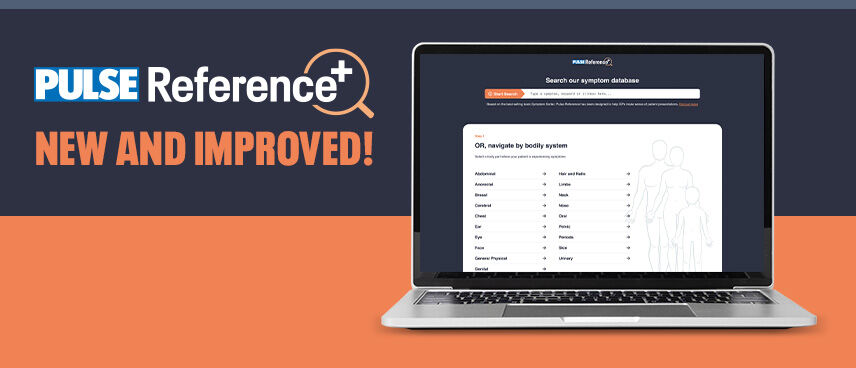Pulse Reference: All the symptoms and diagnoses guides you need
We are thrilled to unveil the Pulse Reference relaunch, a unique resource that allows GPs to make sense of their patients’ symptoms and delve deeper into likely diagnoses

Based on the best-selling Symptom Sorter book, co-authored by Pulse’s own clinical adviser, Dr Keith Hopcroft, Pulse Reference covers the vast majority of symptoms seen in general practice, from the most common to some of the more obscure.
Unlike any other tool or website on the market, Pulse Reference is comprehensive, easy to access, practical and written from the real world of general practice. It will point the GP towards possible differentials, highlight useful tips and red flags along the way and help towards formulating a likely diagnosis.
We have taken on board suggestions from users, and Pulse Reference now includes useful overviews summarising all the key information the GP needs to know for that diagnosis, from epidemiology through assessment to treatment and prognosis.
Information is presented in a consistent, comprehensive, and digestible way. It is also a vital learning tool for those starting out in general practice.
The experts behind Pulse Reference are Dr Keith Hopcroft and Dr Poppy Freeman. Dr Keith Hopcroft is the co-author of Symptom Sorter and has been Pulse’s editorial advisor for more than 15 years. He is a GP in Basildon, Essex, a medical student trainer and medical writer and columnist. Dr Poppy Freeman is also a clinical advisor to Pulse and set up the Covid Toolkit on Pulse Today in 2020 to provide GPs with up-to-date guidance on all the clinical and organisational Covid updates. She is a GP in Camden.
How GPs can use Pulse Reference
- Step 1: Start your search: Type a symptom, keyword or illness into the search bar
- Step 2: Explore the full GP analysis of the symptom, which includes:
- Differential diagnosis: the likely diagnoses, subdivided into common, occasional and rare
- Ready reckoner: key distinguishing features of the most common diagnoses
- Possible investigations: those tests most likely to assist you in making the diagnosis
- Top tips: useful hints from the authors’ experience
- Red flags: scenarios that should ring alarm bells – and why
- Step 3: Read an overview of the likely diagnosis









